[Murata Articles] PoC system requirements for inductors and noise supp…
- Writer : 최고관리자
- Date : 23-09-21 07:45
- Hit : 4,844회
본문
6. Example of radiated noise suppression
Next, we used SerDes evaluation boards with a PoC system to measure radiated noise and carried out noise suppression. We connected the Tx and Rx evaluation boards with a 1.5-meter automotive coaxial cable. We then supplied power on the Rx side and measured the radiated noise when the evaluation boards began operating.
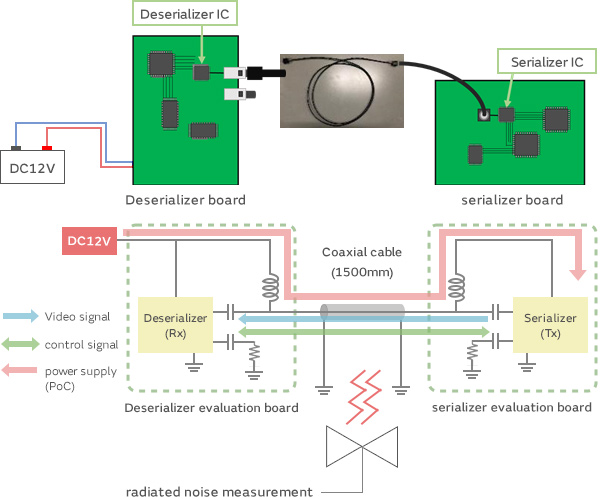 Evaluation sample (DUT) : SerDes evaluation board
Evaluation sample (DUT) : SerDes evaluation boardInitial state
When we measured radiated noise, broadband noise was confirmed throughout the entire range from 30 MHz to 2.5 GHz, and there were frequency bands where it exceeded the standard value.
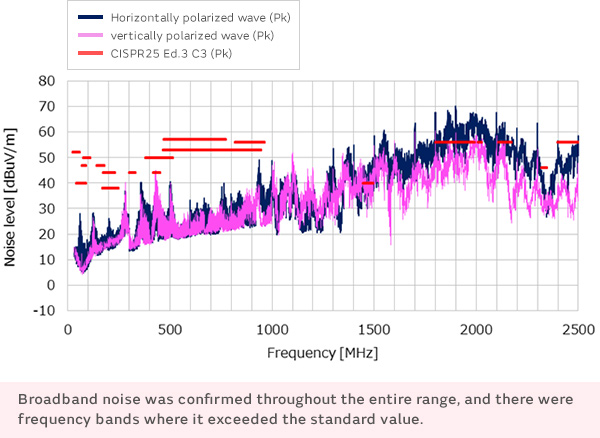 Initial state
Initial stateNear-field magnetic distribution, measurement results
To check for noise sources on the board, we measured the near-field magnetic distribution on the board surface.
We monitored the wide-band noise spectrum of the SerDes signal lines and the power supply lines to the IC. In addition, we compared the spectrum shapes of both and found that the different values had similar figures.
This shows that the noise source for the signal lines is the same as that for the power lines.
Since the signal lines showed a higher level, we believe that the SerDes signals are the noise source.
*The DC-DC converter on this evaluation board does not use switching control, so switching noise is not the source of the magnetic field distribution.
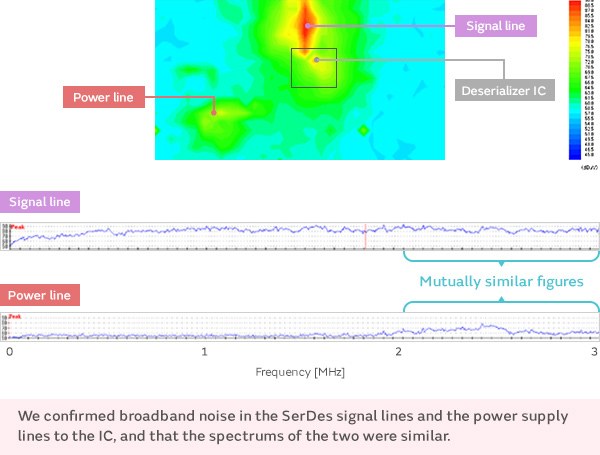 Near-field magnetic distribution, measurement results
Near-field magnetic distribution, measurement resultsNoise transition paths from serializer (assumed)
The assumed noise transition paths are as follows.
Path ①
Transmission of noise from board GND and cable shield layer to signal lines.
Path ②
Coupling of noise from path ① to power supply layer and transmission of noise to power cable.
Noise components in signals sent by the serializer IC are coupled with the GND layer on the board and transmitted along the coaxial cable in common mode (path ①).
These noise components are conveyed to the board mounted with the deserializer IC, coupled to the power supply layer in the board, and transmitted along the power cable in common mode (path ②).
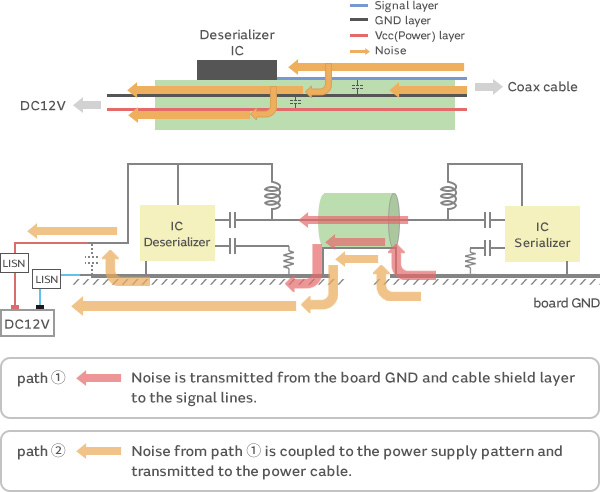 Noise transition paths from serializer (assumed)
Noise transition paths from serializer (assumed)As a countermeasure for path ①, we installed a DLW21SH391XQ2 CMCC for the signal lines,
and as a countermeasure for path ②, we installed a PLT5BPH5013R1SN CMCC for the power lines.
As a result, noise was reduced by 10 to 20 dB in the range from 30 to 1,000 MHz, compared with not using a filter.
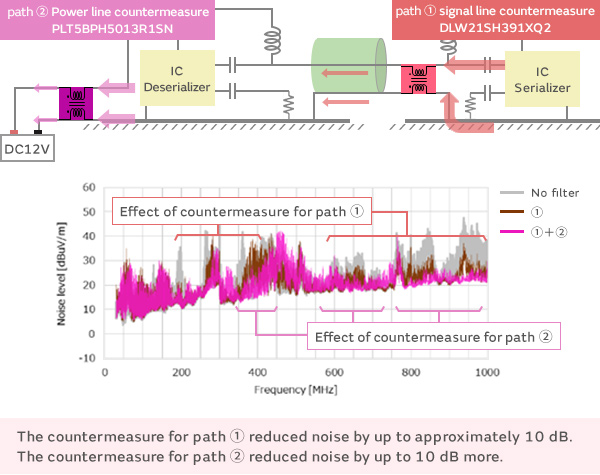 30 to 1000MHz
30 to 1000MHzCommon mode choke coils recommended by Murata
Countermeasures ① + ②
Applying both of the countermeasures together reduced noise by up to approximately 25 dB over the entire frequency range from 30 MHz to 2.5 GHz.
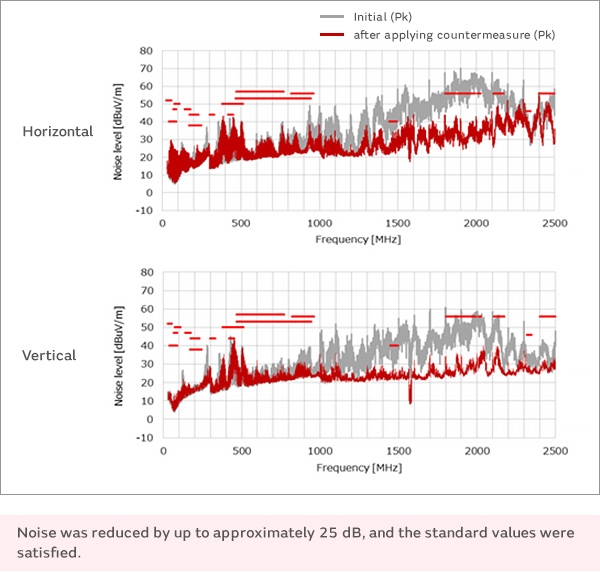 Countermeasures ① + ②
Countermeasures ① + ②7. Summary
- For PoC systems, we verified SI improvement using a Bias-T inductor and noise suppression using CMCCs.
- SI was improved by using an inductor (LQW32FT series) with wide-band characteristics.
- Since the effect of cables on SI cannot be ignored, we believe it is desirable to take into account S parameter characteristics, including cables, when evaluating the use of Bias-T inductors in PoC systems.
- Keeping in mind that switching noise from the DC-DC converter can adversely affect SI, we performed verification. The results confirmed that a Bias-T inductor for PoC applications reduces switching noise.
- We confirmed that noise sources such as switching noise from the DC-DC converter and SerDes signals can adversely affect the radiated noise level. We found common mode choke coils (DLW21S series) to be an effective countermeasure.
(source : Murata)

